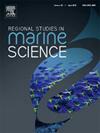应对核废水排放的国际船舶压载水管理
IF 2.1
4区 环境科学与生态学
Q3 ECOLOGY
引用次数: 0
摘要
2023年8月24日,日本正式开始向太平洋排放福岛第一核电站的核废水。这一史无前例的行动引发了全世界对其生态影响的关注,为处理类似的紧急污染事件开创了先例,并暴露了现行船舶压载水管理框架在核辐射风险预防方面的严重缺陷。本文通过系统分析现有压载水处理技术和管理框架,揭示了处理核污染水的内在风险和不足。这些缺点包括:缺乏统一的装载标准和船舶专用规定;核污染处理技术不足,一些船舶完全没有压载水处理系统,而另一些船舶在改造这些系统时面临高成本和技术挑战;压载水交换可能加速污染扩散的做法;没有明确的排放标准;抽样和监测程序不一致,频率低,方法单一;记录保存做法不充分,包括保存时间短、披露不充分以及缺乏放射性核素浓度数据。此外,放射性压载水标准的制定也受到国际政治和经济冲突的阻碍。在此基础上,提出了完善装载法规、开发和应用核辐射处理技术、优化航线规划、加强监管监督和数据记录、制定全球统一管理标准等具体建议。其目的是为海事当局、船东和港口国提供一个参考框架,以有效解决现行核污染预防制度的空白,维护海洋生态环境。通过揭示核辐射相关风险管理的核心缺陷,本文希望激发进一步的研究和实践进步,促进国际合作,建立一个科学、系统的压载水管理框架,能够有效应对核污染挑战。本文章由计算机程序翻译,如有差异,请以英文原文为准。
International ship ballast water management in response to nuclear wastewater discharge
On August 24, 2023, Japan officially began discharging nuclear wastewater from the Fukushima Daiichi Nuclear Power Plant into the Pacific Ocean. This unprecedented action has sparked worldwide concern over its ecological impacts, set a precedent for handling similar emergency pollution incidents, and exposed critical shortcomings in the current management framework for ship ballast water in terms of nuclear radiation risk prevention. By systematically analyzing existing ballast water treatment technologies and management framework, this paper reveals the inherent risks and deficiencies in addressing nuclear-contaminated water. These shortcomings include: a lack of uniform loading standards and vessel-specific regulations; Insufficient technologies for nuclear pollution treatment, with some vessels lacking ballast water treatment systems altogether, while others face high costs and technical challenges in retrofitting such systems; ballast water exchange practices that may accelerate the spread of contamination; the absence of clear discharge standards; inconsistent sampling and monitoring procedures characterized by low frequency and a singular methodological approach; and inadequate record-keeping practices, including short retention times, insufficient disclosure, and a lack of data on radionuclide concentrations. Moreover, the establishment of standards for radioactive ballast water is hampered by international political and economic conflicts. Then, this study proposes specific recommendations covering the improvement of loading regulations, the development and application of nuclear radiation treatment technologies, the optimization of shipping route planning, the enhancement of regulatory oversight and data recording, and the formulation of globally unified management standards. The aim is to provide a reference framework for maritime authorities, shipowners, and port states to effectively address the gaps in current systems for nuclear pollution prevention and to safeguard the marine ecological environment. By uncovering the core deficiencies in the management of nuclear radiation-related risks, this paper aspires to stimulate further research and practical advancements, fostering international collaboration to build a scientific and systematic ballast water management framework capable of effectively responding to nuclear contamination challenges.
求助全文
通过发布文献求助,成功后即可免费获取论文全文。
去求助
来源期刊

Regional Studies in Marine Science
Agricultural and Biological Sciences-Ecology, Evolution, Behavior and Systematics
CiteScore
3.90
自引率
4.80%
发文量
336
审稿时长
69 days
期刊介绍:
REGIONAL STUDIES IN MARINE SCIENCE will publish scientifically sound papers on regional aspects of maritime and marine resources in estuaries, coastal zones, continental shelf, the seas and oceans.
 求助内容:
求助内容: 应助结果提醒方式:
应助结果提醒方式:


